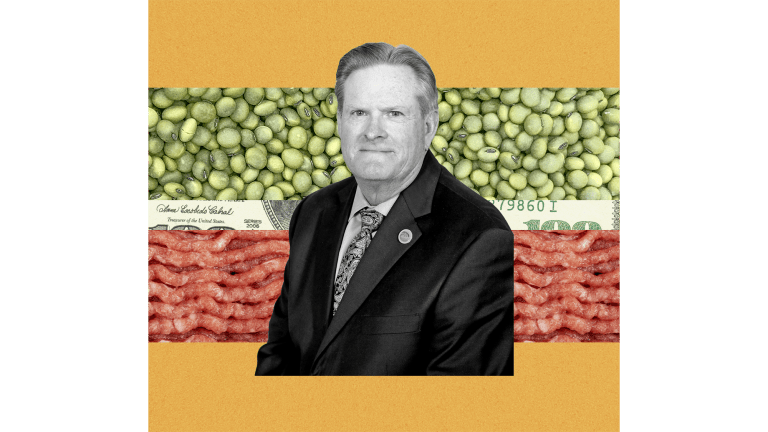First a favor: Please digg my original debunking of Superfreakonomics by clicking here.
I’m trying to draw as much attention as possible to the post since the book comes out Tuesday, it has a huge media blitz, and will be heavily reviewed. My post already been referenced by Nobelist Paul Krugman on his blog (”A counterintuitive train wreck“) and Mother Jones (”The Freaky Science of SuperFreakonomics“) and Think Progress (”SuperFreakonomics Gets Climate Change Super Freaking Wrong,” among others.
What’s interesting is that since my original post and various other debunkings around the web, the publisher has stopped Amazon from allowing people to search the book. It’s fairly common for publishers to allow such searching, though not all do — see Amazon bestseller list here. But I don’t know of a single instance where searching was allowed and then stopped. It seems to me the publisher must be concerned that bloggers and others could actually see and quote the myriad errors and sheer illogic and patent nonsense for themselves and not bother buying the book, which at least for now has dropped down to #9 on Amazon (it was 3 or 4 over the weekend).
Obviously, a book that contains the sentence, “Any religion, meanwhile, has its heretics, and global warming is no exception,” is anti-scientific. But probably the worst thing about the book from the point of view of spreading anti-scientific disinformation is the use of the phrase “global cooling” in the subtitle, SuperFreakonomics: Global Cooling, Patriotic Prostitutes, and Why Suicide Bombers Should Buy Life Insurance. Millions of people who never even buy the book will now be subjected to that long-debunked piece of nonsense in book reviews and elsewhere. The book hits the trifecta of global cooling mistakes:
- The climate chapter begins with a full page pushing the myth that there was some sort of scientific consensus about global cooling in the 1970s. Not — see “Killing the myth of the 1970s global cooling scientific consensus.” The chapter leads off with a NYT article, but, as we’ve seen, even The NYT’s climate coverage in 1970s was a megaphone for science, not ‘global cooling’ alarmism.
- The chapter pushes the “we’re cooling now myth.” On page 186, Levitt and Dubner write, “Then there’s this little-discussed fact about global warming: while the drumbeat of doom has grown louder over the past several years, the average global temperature during that time has in fact decreased.” Sadly, it isn’t “little discussed” — the deniers and media have been pushing this for months now, so it doesn’t even qualify as a contrarian view, just utter rubbish, the kind of conventional wisdom these guys used to debunk. See The BBC asks “What happened to global warming?” during the hottest decade in recorded history! and Skeptical Science explains how we know global warming is happening: It’s the oceans, stupid! and NYT’s Revkin pushes global cooling myth (again!) and repeats outright misinformation.
- The chapter pushes the dystopic notion that the only “cooling” strategy we need to address global warming is pumping massive amounts of acid rain pollution into the atmostphere, which I (and Caldeira and Robock) debunk in Part 1 and Part 2:
Frankly, it’s not possible for one person to debunk every error and illogical statement in just that one chapter — and I haven’t even gotten to the economics, which has one of the biggest blunders of all, as we’ll see. Fortunately, lots of other people are joining in. The Union of Concerned Scientists has a thorough debunking of the science here, summarized below:
New Book “SuperFreakonomics” Mischaracterizes Climate Science
A follow-up to the bestselling book “Freakonomics” features a chapter that grossly mischaracterizes climate science, according to the Union of Concerned Scientists.
The new book, “SuperFreakonomics” by Steven D. Levitt and Stephen J. Dubner, is slated to be officially released on October 20, 2009. Experts at UCS found that the fifth chapter of the book, “Global Cooling,” repeats a large number of easily discredited arguments regarding climate science, energy production, and geoengineering.
The authors appear to have taken a purposefully contrarian position on climate change science and economics. While such a position may help draw attention to their book, their reliance on faulty arguments and distorted statistics does a disservice to their re
aders.In chapter five, the authors:
- Repeat tired global cooling myths
- Unfairly trash climate models
- Highlight irrelevant statistics about carbon dioxide without context
- Extol the virtues of excess carbon dioxide while ignoring the downsides
- Ignore a major source of sea level rise
- Cherry-pick short-term climate fluctuations while missing the bigger picture
- Use faulty statistics to trash renewable energy
- Advocate rolling the dice on unproven technology
- Use a silly analogy to attack plans to reduce emissions
Please put links to any other debunkings into the comments section.
And please digg my original debunking of Superfreakonomics by clicking here. I am in the process of adding back a Digg counter just for these instances when I might have a post of interest to a much wider audience.
UPDATE: Here’s another great takedown, by Deltoid, see “Why Everything in Superfreakonomics About Global Warming Is Wrong.”


